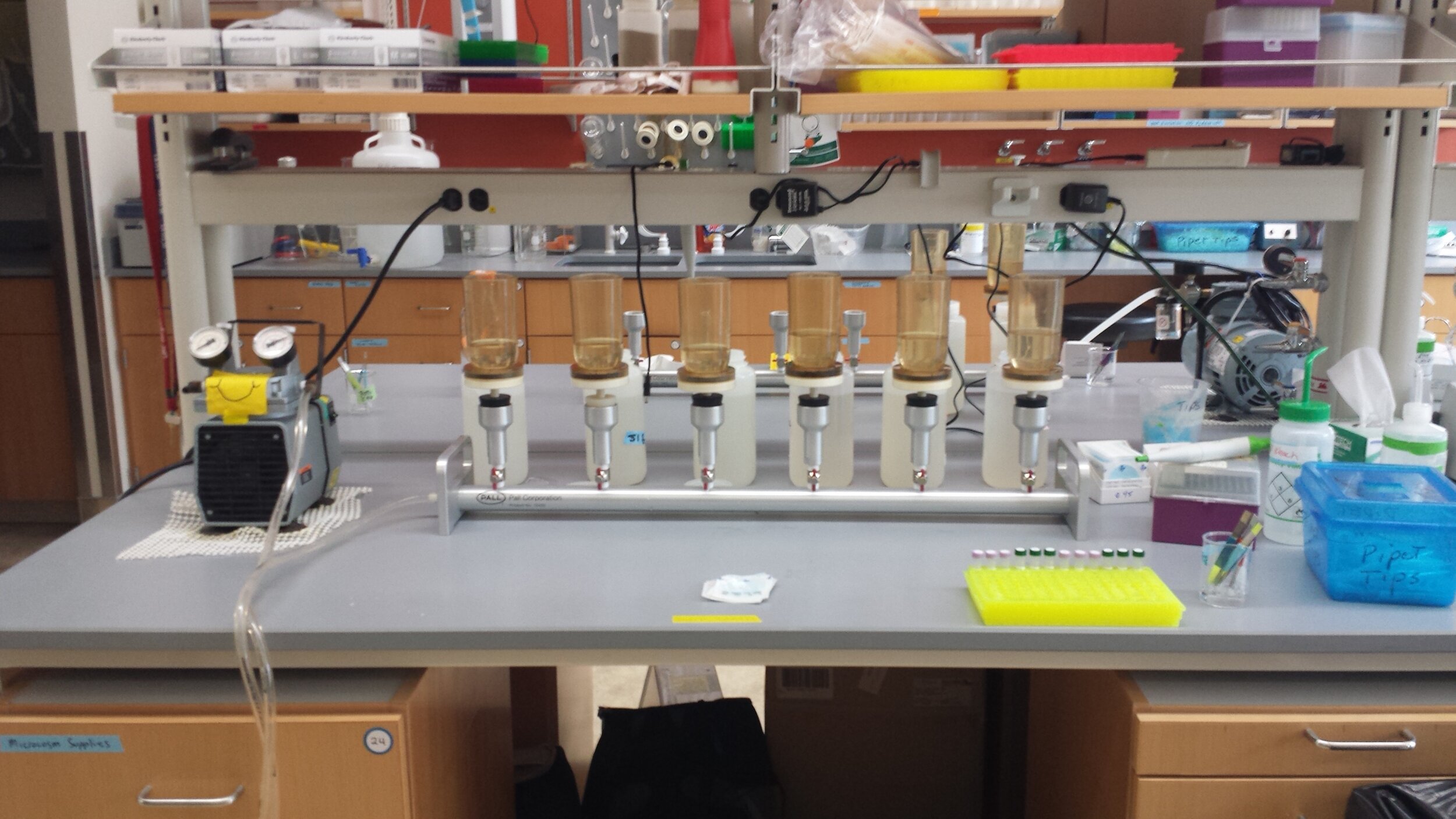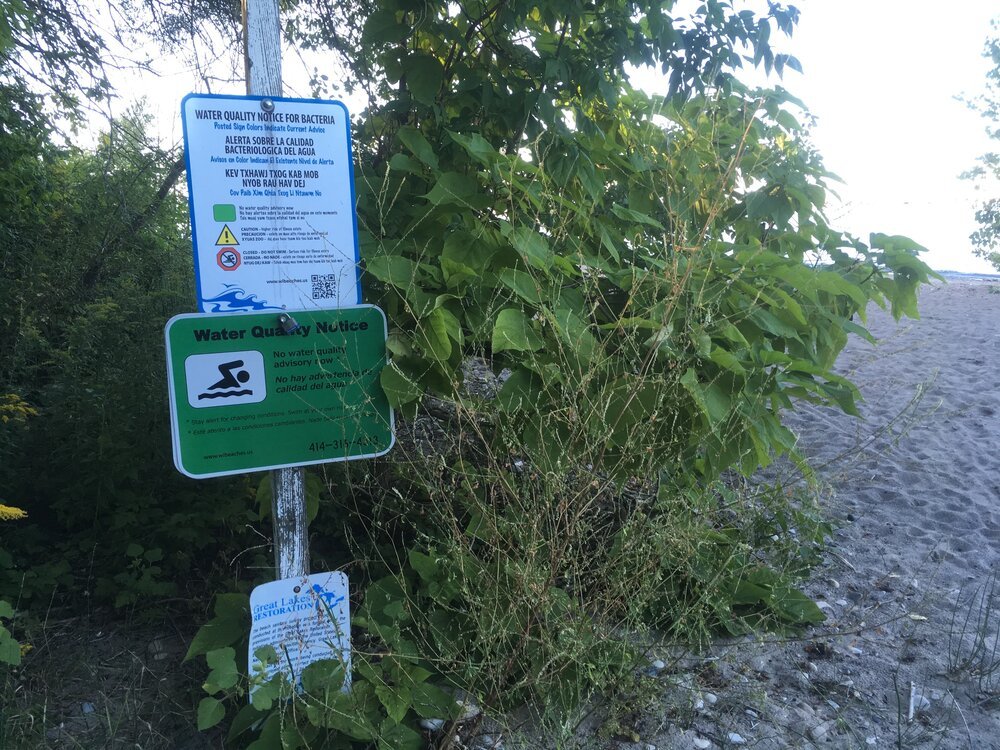Emily Koster
Putting Together the Plume Puzzle Pieces
“I walked into this lab having never taken a microbiology course, having never taken a genetics course. So every day I'm in the lab I feel I learn something new from this amazing group of microbiologists.”
Meet Emily. A Milwaukee native, Emily is a graduate student in Dr. Sandra McLellan’s lab at the UW-Milwaukee School of Freshwater Sciences helping to put together the puzzle pieces of evidence that inform when we should close our beaches to protect the public from exposure to pathogens in the water. Ever since she was a little girl playing in and around Wisconsin’s lakes, Emily was interested in protecting this precious natural resource. From Dr. McLellan and other researchers who underscore that interdisciplinary collaboration is the norm at SFS—including Dr. Ryan Newton and Dr. Hector Bravo—Emily has learned what it means to work in a lab, how to communicate scientific knowledge to audiences with different perspectives, and more about microbiology than she ever imagined. Emily is looking ahead to applying what she’s learned to a career that bridges science and policy.

Emily gets to work and learn in the McLellan lab. This photo shared by postdoctral researcher Jill McClary-Gutierrez shows a filtration manifold used to concentrate samples for culturing fecal indicator bacteria and collecting DNA.

Frequent beach closures are one “beneficial use impairment” keeping the Milwaukee Estuary on the U.S. EPA’s list as an “Area of Concern.” The work of Emily and the McLellan lab is trying to get us to stay in the green when it comes to beach water quality advisories posted by the Milwaukee Health Department.
The Milwaukee Estuary Area of Concern
Milwaukee is designated by the U.S. Environmental Protection Agency as an “Area of Concern” due to historic contamination that impairs beneficial uses of our shared waters. Too many beach closures is considered one of those impairments, so Emily’s work is helping to make progress toward getting the Milwaukee Estuary off the AOC list.
Learn more about the technical aspects of what it means at this Wisconsin Department Natural Resources site.
Learn how you can get involved with the community advisory committee.
Take a quick virtual tour of the AOC in the short video courtesy of Reflo and the Milwaukee Community Map.

